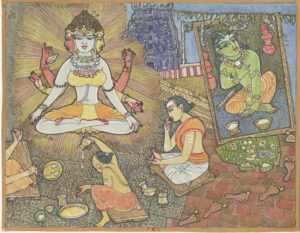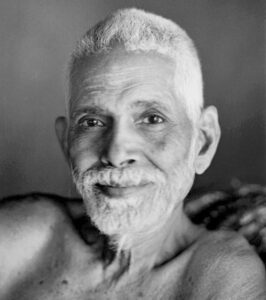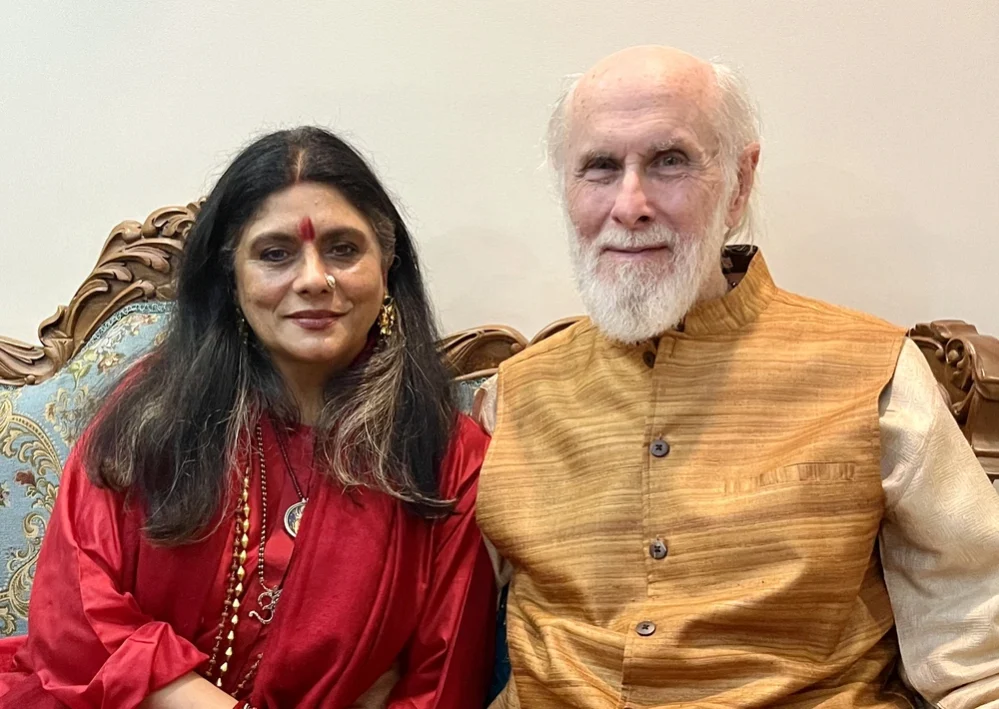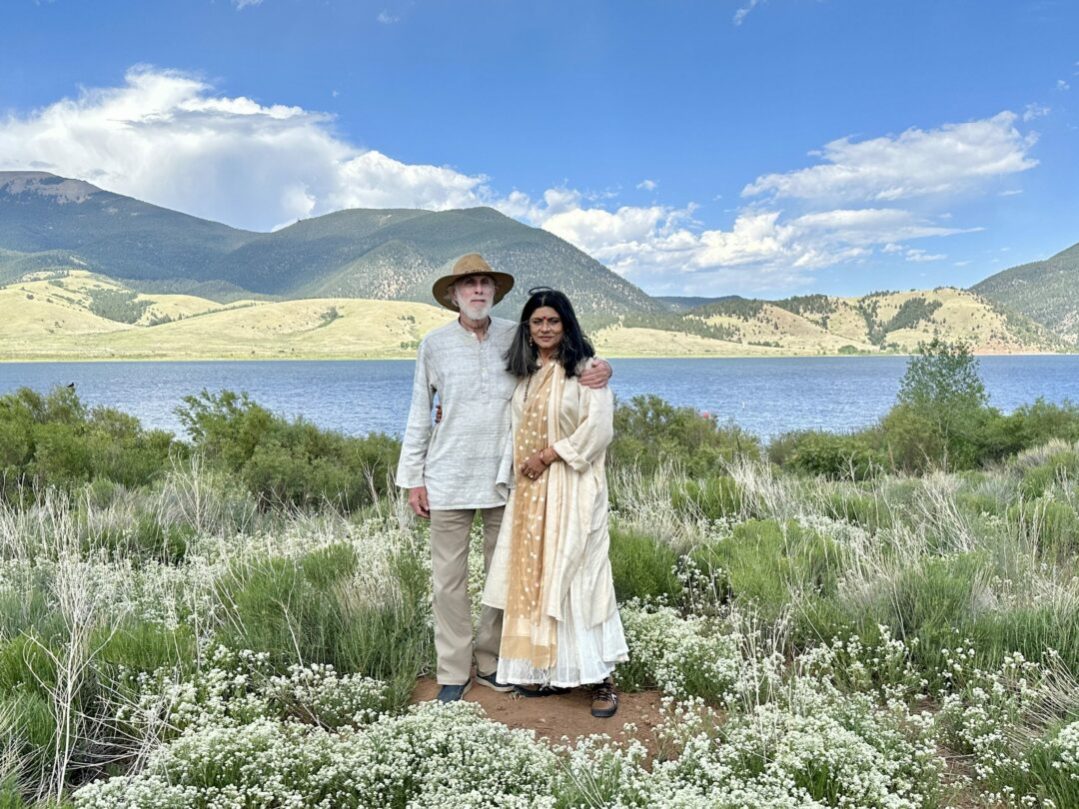Satya is one of the most common principles of Vedic thought, extending throughout Yoga and Vedanta, mentioned in texts from Vedas and Upanishads. Yet like many Vedic terms it is misunderstood and hard to translate.
Satya is usually rendered as “truth”, which is its closest equivalent, but Satya is not what is ordinarily called truth in western thought. Perhaps the clearest translation of Satya is “eternal truth”, relative to the ultimate truths of Consciousness and the Absolute, Brahman, Atman and Purusha of Vedic thought.
Transcendent or Mundane Truth
Satya is not the pursuit of truth in a mundane or scientific sense, which can be proved by outer experiments. Vedanta recognizes a higher or supreme truth (Paramarthika Satya) beyond name and form, and a lower or mundane truth (Vyavaharika Satya), circumscribed by name and form. Self-realization and Moksha is only possible through the Paramarthika or higher eternal truth. The lower truth is necessary for convenience of functioning in the outer world.
Vedanta teaches that what we call the world is not satya. It is a-satya, sometimes rendered as “falsehood”. Simply put, the world is limited, transient or impermanent, which means it is not the eternal truth or Satya. This is not to deny its transient truth or practical value in physical and social affairs.
Mind as Asatya
Most significantly, in Yoga and Vedanta, the mind (chitta or manas) is said to be a-satya, untrue, as it is a product of a-vidya. Avidya usually translated as “ignorance” means absence of true knowledge or vidya in the higher sense, meaning absence of Satya vidya, the higher or Self-knowledge. Avidya is not lack of information about the outer world or intellectual acuity. It includes knowledge of asatya or the transient. True vidya is Satya vidya or eternal knowledge and avidya including the mind is transient knowledge. True Vidya is Atma-Vidya or knowledge of the immortal Self. Any other knowledge or vidya is ultimately a-vidya and cannot take us beyond death and sorrow.
Yet the mind includes more that is asatya than mere outer facts and data. The mind is abounds with imagination, desire, opinions, emotions and prejudices of various types. The mind is characterized by wishful thinking (vikalpa), as the mind is rooted in the ego (ahamkara) and serves to justify what the ego wants as the truth or the goal of its activity.
Mind is not an instrument of truth perception in the sense of satya. It is a means of protecting the interests of the embodied individual and their personal needs, desires and compulsions in physical reality and the social world. That is why the mind yields itself to advertising, propaganda, distortion and misinterpretation. It is why the minds of people seldom agree, because the mind reflects changing individual self-interest, not abiding or universal truth.
The mind does have a sense of external truth, including right use of the senses and reason, but in the outer sense of name, form, number or time, place, person. In addition, the mind can have a concept of an eternal or enduring truth but not a realization of it. That fire burns is an eternal or universal truth the mind can observe, for example, but it is not the truth of the eternal or a realization of the universal.
In our current information technology era, we are greatly expanding the outer or lower level of knowledge of name, form and number, which can be very helpful in practical activity. But through it we are not expanding the higher knowledge or eternal Satya that is rarely recognized in science or in modern education. In fact we may be moving further away from the inner knowledge that is beyond mere information, technology or anything external.
Is there an overlap possible between the lower and higher levels of truth? To some degree, certainly, as both require an objective, observant, detached state of mind. But the higher truth requires that the mind is inwardly silent, thought is put to rest, emotion is purified, and the senses turned within. This requires meditation and samadhi, in which the silent mind can like a mirror reflect the pure consciousness of universal Self-awareness. To arrive at it requires sadhana, not mere calculation.
Being and Truth
To know the truth in this higher sense of Satya is difficult and daunting. Satya is not information in any factual sense, it is a state of Being or Sat. The pursuit of Satya is a pursuit of Sat. It is the knowledge of Sat or Sadvidya that is required for this Eternal Satya, which is non-conceptual and beyond the mind, yet is the abiding presence of Being within and around us.
So when Yoga asks to practice Satya, it is not merely about asking us to know the factual truth or provide the right information, or actually tell what we feel or think, which are all transient. It is about the pursuit of eternal truth and making our behavior reflect the laws of dharma, which means letting go of the transient as ultimately unreal. It is a search for higher truth and Being.
The ultimate truth of who we are is this eternal Satya, which is Sat-Chit-Ananda, Being-Consciousness-Bliss absolute. What is not that is a-satya or not true in the ultimate sense, however temporarily important it may be, like the food we eat.
Let us affirm that eternal Satya, abide in it as the Seer within, and we can go beyond all the disturbances and dualities of the transient realm! We can function with clarity and creativity in the realm of time, yet rooted in the Eternal. This is the yogic Satya, truthfulness of Being, not simply being correct in what we say outwardly.
Vamadeva






